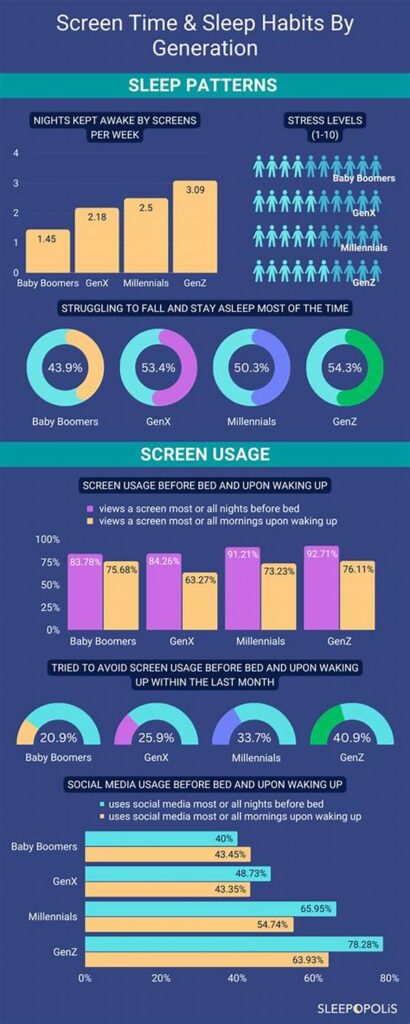The Link Between Sleep and Time Efficiency
Have you ever noticed how after a night of poor sleep, even the most mundane tasks seem to become Herculean efforts? It’s not just your imagination, there is a tangible link between sleep and time efficiency. Sleep, often underestimated, plays a pivotal role in our daily productivity and time management. Companies and entrepreneurs often preach the maxim “time is money,” encouraging employees to squeeze every last bit of efficiency from their work hours. Yet, many overlook the most natural booster of efficiency—sleep. Adequate sleep doesn’t just let you feel more rested; it fundamentally improves cognitive function, decision-making, and creativity. Think of sleep as the unsung hero in your quest to masterfully conquer your to-do list.
Read More : The Ultimate Focus Solution: Is This Simple Batching Strategy The Key To Email And Admin Work?
In today’s fast-paced world, where the battle against the clock is incessant, a restful sleep could be the bedrock of time efficiency. Imagine being able to complete projects faster, make decisions swifter, and most importantly, feel less stress and more satisfaction at the end of the day. The link between sleep and time efficiency becomes starkly clear when positioned like this. It’s not about burning the midnight oil; it’s about burning brightly when the day beckons.
Understanding the Connection
Recent studies have delved deeper into how sleep impacts our varied facets of work and life. The research suggests that our brain undergoes significant recovery processes during sleep, consolidating memories, and clearing out toxins. This could be where the link between sleep and time efficiency is most profound. By maintaining a healthy sleep routine, not only does your brain function optimally, but your time becomes highly efficient. That’s a killer combo in the world of productivity!
—
Building on Foundations: Sleep’s Role in Efficiency
Many professionals boast about their ability to function on minimal sleep as if it were a badge of honor. But science suggests otherwise. Our bodies are designed to thrive with a certain amount of rest, and skimping on it can have immediate and long-term consequences. So what exactly happens when we overlook sleep for the sake of squeezing in more tasks?
Firstly, there’s an undeniable link between sleep and time efficiency as revealed by neuroscientific studies. When we shortchange our sleep, our cognitive processes become less sharp. Memory retention declines, focus wavers, and critical thinking skills take a hit. These are all essential components of a day filled with efficient time management. Remember the last time you felt in the zone, just smashing through your workload? You likely had a good night’s sleep backing you up.
The Domino Effect
These efficiencies don’t just make your working hours productive; they expand into every aspect of your life. The link between sleep and time efficiency has ripple effects—impacting not just professional life but personal endeavors. That art project you’ve been meaning to finish or the self-improvement book you intended to read; consider them part of a productive lifestyle catalyzed by quality sleep.
On the contrast, poor sleep might set off a domino effect leading to inefficiencies. Missed alarms, forgotten appointments, and a pile-up of tasks. Then, the cycle continues—skimping on sleep another night to catch up proves to be a false economy. Instead, drawing the curtains earlier and recharging promises a quieter mind and more productive tomorrow.
—
The Science Behind Sleep and Efficiency
Researchers have quantified time efficiencies gained through sound sleep. According to a study by the National Sleep Foundation, productivity drops by up to 30% when individuals are sleep-deprived. That’s like losing two and a half days per workweek! The link between sleep and time efficiency, therefore, holds genuine potential to transform our understanding of productivity.
Moreover, a good night’s sleep stabilizes our emotions and mood, preventing minor workplace annoyances from blowing out of proportion. The benefits of sleep transcend mental clarity; they ensure stable emotional responses, which flow back into how effectively time is utilized.
Steps Towards Better Sleep for Greater Efficiency
Recognizing the link between sleep and time efficiency is just the first step. Many people fail to translate this understanding into actionable steps. But no worries, here’s how you can make sleep your productivity secret weapon:
1. Prioritize Sleep: Treat your sleep time as sacred—don’t compromise it for late-night emails or pointless social media shifts.
2. Listen to Your Body: Pay attention to your sleep-wake cycle. If you’re naturally an early riser, craft your efficiency around the morning hours.
These strategies draw from the link between sleep and time efficiency, revealing sleep not as a passive activity but as an integral part of your productivity toolkit.
—
[H2] Don’t Hit Snooze on This
Disregarding sleep is akin to sabotaging your efficiency. Don’t let sleep myths dictate your productivity—embrace the power of shut-eye and witness how the link between sleep and time efficiency transforms your waking hours into a realm of heightened capacity and creativity.
—
[H3] Key Aspects of Sleep Affecting Efficiency
Sleep doesn’t just impact how awake you feel; it affects everything from the micro (minute-to-minute decision making) to the macro (long-term goal achievement). The key lies in making informed choices about sleep to harness the link between sleep and time efficiency, thus allowing for a vibrant, effective lifestyle, ready to take on the challenges and joys every day brings.


